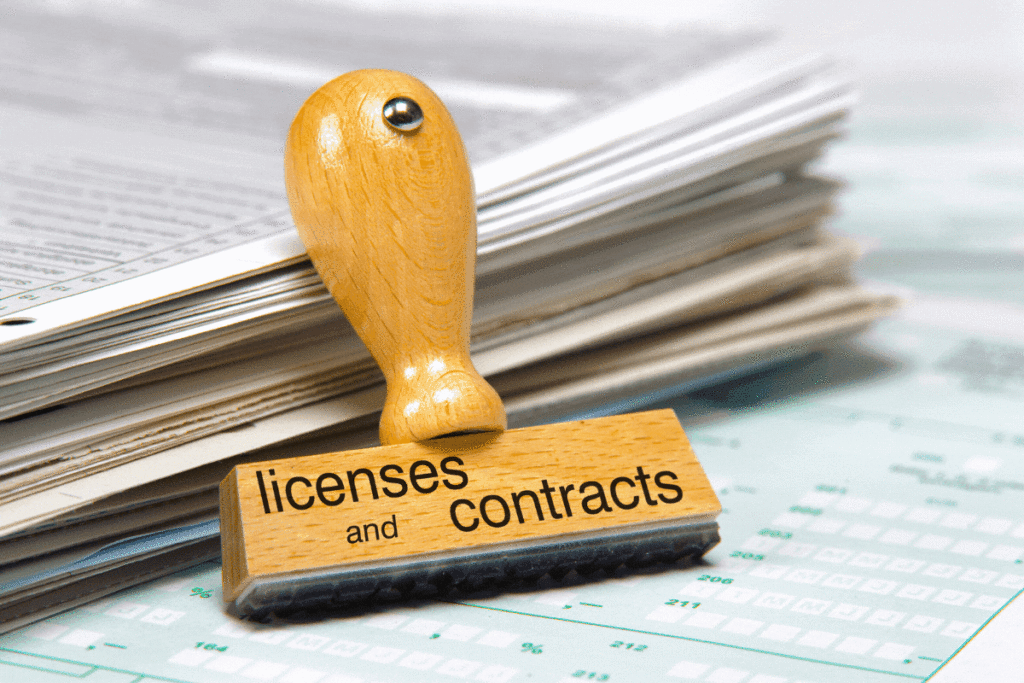Music Licensing: A Comprehensive Guide
Music licensing is a crucial aspect of the music industry that allows artists, composers, and producers to monetize their creative works. It involves granting permission to others to use copyrighted music in various forms of media, such as films, TV shows, advertisements, video games, and more. In this comprehensive guide, we will explore the ins and outs of music licensing, including its types, benefits, process, and important considerations.
Types of Music Licensing
There are several types of music licensing agreements that govern the use of copyrighted music. Understanding these types will help you navigate the licensing process effectively.
- Sync Licensing: Sync licensing refers to the use of music in synchronization with visual content, such as films, TV shows, commercials, and video games. This type of licensing is highly sought after, as it allows music to enhance the emotional impact of visual media.
- Mechanical Licensing: Mechanical licensing grants permission to reproduce and distribute copyrighted music in the form of physical or digital recordings. This type of licensing is typically required when artists or record labels want to cover or remix existing songs.
- Performance Licensing: Performance licensing allows music to be performed or played publicly, whether it’s live or through digital platforms like radio, streaming services, or public venues. Performance rights organizations (PROs) handle the collection and distribution of royalties for these licenses.
- Print Licensing: Print licensing involves the use of copyrighted music in printed sheet music, songbooks, or educational materials. This type of licensing is essential for music publishers and composers who want to monetize their compositions in written form.
Benefits of Music Licensing
Music licensing offers numerous benefits for both artists and licensees. Let’s explore some of the key advantages:
- Financial Opportunities: Licensing your music can provide a significant source of revenue through upfront licensing fees and ongoing royalty payments. It allows artists to earn money from their creations beyond traditional album sales and performances.
- Exposure and Promotion: When your music is licensed for popular media, it exposes your work to a wider audience, potentially leading to increased fan base, recognition, and career opportunities. It can also serve as a powerful promotional tool for emerging artists.
- Collaboration Opportunities: Licensing your music opens the door to collaboration with filmmakers, TV producers, and other creative professionals. Collaborative projects can broaden your artistic horizons and help you establish valuable connections within the industry.
The Music Licensing Process
Now that we’ve covered the types and benefits of music licensing, let’s dive into the step-by-step process of obtaining a music license:
- Determine Your Rights: Before you can license your music, ensure that you own all the necessary rights or have obtained permission from the relevant rights holders, such as co-writers or music publishers.
- Register Your Music: Register your compositions and sound recordings with a performing rights organization (PRO) like ASCAP, BMI, or SESAC. These organizations help collect royalties on your behalf.
- Create a Licensing Plan: Identify the types of licensing that best suit your music and target audience. Research potential licensees, such as production companies, advertising agencies, or game developers, to understand their licensing needs.
- Reach Out to Licensees: Contact potential licensees directly or work with a music licensing agency to pitch your music. Provide them with a well-curated catalog, including high-quality recordings, metadata, and licensing terms.
- Negotiate and Sign Agreements: Once a licensee expresses interest, negotiate the licensing terms, including usage duration, territories, and fees. Consult with an attorney or a music licensing professional to ensure fair and favorable terms.
- Monitor and Collect Royalties: Keep track of where your music is being used and ensure proper reporting and payment of royalties. PROs play a vital role in monitoring and collecting performance royalties, while mechanical royalties are collected through organizations like the Harry Fox Agency.
Important Considerations
While pursuing music licensing opportunities, it’s essential to keep the following considerations in mind:
- Copyright Infringement: Ensure that you are not infringing on anyone else’s copyrighted material when creating and licensing your music. Conduct thorough research and seek legal advice if needed.
- Licensing Agreements: Read and understand licensing agreements carefully before signing. Pay attention to exclusivity, payment terms, and any restrictions on future use of your music.
- Sync vs. Master Rights: Differentiate between sync licensing and master rights licensing. Sync licensing grants permission to use the composition and recording together, while master rights licensing allows the use of the recording only.
- International Licensing: If you plan to license your music internationally, consider working with sub-publishers or international licensing agencies to navigate the complexities of foreign markets and ensure proper royalty collection.
Key Takeaways
- Music licensing is a crucial aspect of the music industry that allows artists, composers, and producers to monetize their creative works.
- There are different types of music licensing agreements, including sync licensing, mechanical licensing, performance licensing, and print licensing.
- Music licensing offers financial opportunities, exposure and promotion, and collaboration opportunities for artists.
- The music licensing process involves determining your rights, registering your music, creating a licensing plan, reaching out to licensees, negotiating and signing agreements, and monitoring and collecting royalties.
- Important considerations include avoiding copyright infringement, understanding licensing agreements, differentiating between sync and master rights, and considering international licensing.
By taking the time to learn and navigate the world of music licensing, you can open up new avenues for your music career and maximize the potential of your creative works. So, start exploring licensing opportunities today and consider taking the NYU Business of Entertainment online course and certificate program to further enhance your understanding of the business side of the entertainment industry.




